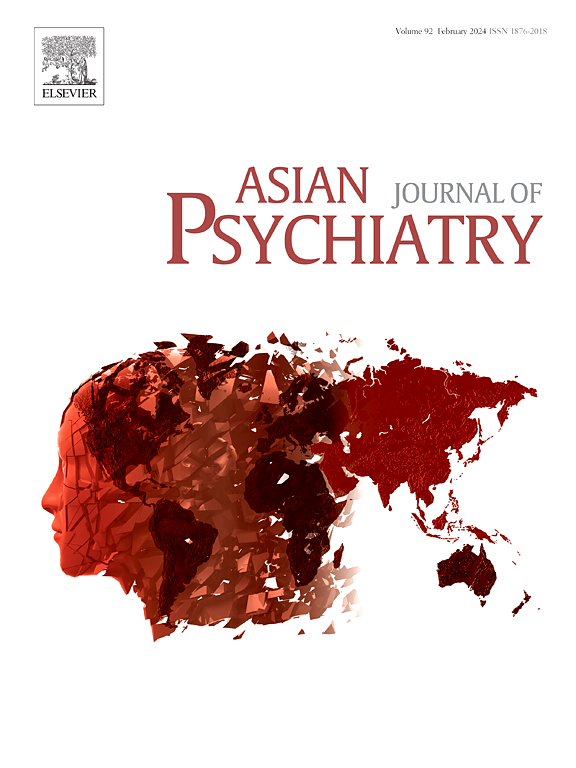Role-play-based hug-robot-mediated communication in promoting friendship among individuals with autism spectrum disorders
IF 4.5
4区 医学
Q1 PSYCHIATRY
引用次数: 0
Abstract
Individuals with autism spectrum disorder (ASD) often experience challenges in building friendships across the lifespan. To address the limitations of existing hug-based interventions, we developed Moffuly-MS, a tele-operated interactive hugging robot. In this study, participants were paired and alternated roles using Moffuly-MS; one person operated the robot to deliver a hug, while the other received it, and they took turns playing both roles. This study aimed to evaluate whether bidirectional haptic interaction via Moffuly-MS could improve mutual understanding and promote a sense of oneness. Twenty-four individuals (20 males and four females) participated over 6 consecutive days. In the with-hug condition, post-intervention scores significantly improved from baseline in both knowledge of partner (t (22) = 3.873, p = .005, r = .64) and sense of oneness (t (22) = 3.182, p = .013, r = .57). A Wilcoxon signed-rank test revealed that perceived relaxation in the hug condition was significantly higher than that in the without-hug condition (z = 2.377, p = 0.017, r = 0.49). The results indicated that participants demonstrated enhanced knowledge of their partner and a greater sense of oneness following the intervention. These findings suggest that our approach may promote social connectedness in individuals with ASD. Future research with larger, more diverse samples and longitudinal designs is needed to confirm and expand upon these results.
基于角色扮演的拥抱机器人介导的交流促进自闭症谱系障碍个体之间的友谊
患有自闭症谱系障碍(ASD)的人在一生中经常遇到建立友谊的挑战。为了解决现有基于拥抱的干预措施的局限性,我们开发了moffly - ms,一种远程操作的交互式拥抱机器人。在本研究中,参与者使用moffly - ms进行配对和角色交替;一个人操作机器人给予拥抱,另一个人接受拥抱,他们轮流扮演这两个角色。本研究旨在评估通过moffuli - ms进行的双向触觉交互是否可以提高相互理解和促进归属感。24个人(20名男性和4名女性)在连续6天的时间里参与了研究。在有拥抱的情况下,干预后得分与基线相比显著提高了对伴侣的认识(t(22) = 3.873,p = 。005年,r = 。64)和统一性(t(22) = 3.182,p = )。013年,r = .57)。Wilcoxon符号秩检验显示,拥抱条件下的放松感显著高于不拥抱条件下的放松感(z = 2.377,p = 0.017,r = 0.49)。结果表明,在干预之后,参与者对他们的伴侣表现出了更强的了解和更强的归属感。这些发现表明,我们的方法可能会促进自闭症患者的社会联系。未来的研究需要更大,更多样化的样本和纵向设计来确认和扩展这些结果。
本文章由计算机程序翻译,如有差异,请以英文原文为准。
求助全文
约1分钟内获得全文
求助全文
来源期刊

Asian journal of psychiatry
Medicine-Psychiatry and Mental Health
CiteScore
12.70
自引率
5.30%
发文量
297
审稿时长
35 days
期刊介绍:
The Asian Journal of Psychiatry serves as a comprehensive resource for psychiatrists, mental health clinicians, neurologists, physicians, mental health students, and policymakers. Its goal is to facilitate the exchange of research findings and clinical practices between Asia and the global community. The journal focuses on psychiatric research relevant to Asia, covering preclinical, clinical, service system, and policy development topics. It also highlights the socio-cultural diversity of the region in relation to mental health.
 求助内容:
求助内容: 应助结果提醒方式:
应助结果提醒方式:


